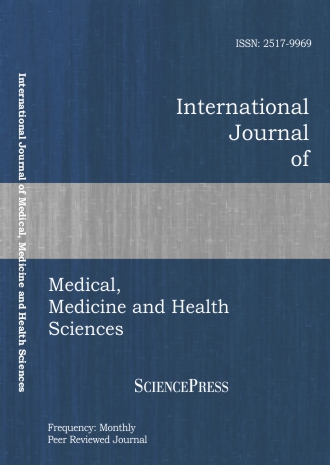
Scholarly
Volume:8, Issue: 5, 2014 Page No: 221 - 229
International Journal of Medical, Medicine and Health Sciences
ISSN: 2517-9969
Effects of Length of Time of Fasting upon Subjective and Objective Variables When Controlling Sleep, Food and Fluid Intakes
Ramadan requires individuals to abstain from food and fluid intake between sunrise and sunset; physiological considerations predict that poorer mood, physical performance and mental performance will result. In addition, any difficulties will be worsened because preparations for fasting and recovery from it often mean that nocturnal sleep is decreased in length, and this independently affects mood and performance.
A difficulty of interpretation in many studies is that the observed changes could be due to fasting but also to the decreased length of sleep and altered food and fluid intakes before and after the daytime fasting. These factors were separated in this study, which took place over three separate days and compared the effects of different durations of fasting (4, 8 or 16h) upon a wide variety of measures (including subjective and objective assessments of performance, body composition, dehydration and responses to a short bout of exercise) - but with an unchanged amount of nocturnal sleep, controlled supper the previous evening, controlled intakes at breakfast and daytime naps not being allowed. Many of the negative effects of fasting observed in previous studies were present in this experiment also. These findings indicate that fasting was responsible for many of the changes previously observed, though some effect of sleep loss, particularly if occurring on successive days (as would occur in Ramadan) cannot be excluded.